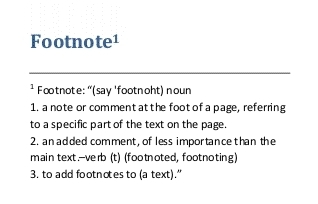Damn footnotes
I am spending the summer trying to crack my book on Roman Laughter -- the Sather lectures I did a few years ago now. It's going OK, but inevitably slower that I hoped.
Part of the problems is the footnotes. On my very own home patch, I can be pretty straight, even cavalier -- I think I know what needs referencing and what doesn't. But on the margins, it's a different matter. For me, one of those margins is Bakhtin. I have just written what will be just a couple of pages only in the finished book, explaining why I think that Bakhtin's linkage of the Roman festival of Saturnalia and medieval raucous, lusty, laughing Carnival is seriously misplaced. Nice as it would be to imagine, Roman Saturnalia does not equal Carnival.
I don't doubt I'm right.. so far as I can see Saturnalia at Rome was (by and large) a relatively paternalistic festival not a celebration of liberation and the lower bodily stratum as Bakhtin would have it (or, for that matter, not a celebration of liberation minus the lower bodily stratum, as Sir James Frazer suggests). But I find myself increasingly and obsessively drawn to justify this, to reference at least 20% of the Bakhtin (and the books on Bakhtin) I've read. And to go on and on with references to different interpretations of the Bakhtinian carnival, until more than half the page is "under the line": "for a different view see Bernstein/Burke/Habinek/Graf -- or whoever".
I know really that it's anxiety. And I also find myself thinking as I do it: "What is this damn footnote FOR?"
Then I got another useful perspective.
This afternoon I picked up a new book on a subject of Roman history that I know very well. I'm not going to say what book it was .. it was a young and well qualified author who doesn't deserve to be pilloried simply because he fell into my hands today; suffice it to say that his book (and it is HIS) is recently published by a prestigious UK university press.
On some pages, half the space is taken up by footnotes, full of apparently learned references. But cui bono? In several cases, books and articles are cited in parallel when they argue completely different positions (Ann Kuttner and G Sauron have seriously divergent views on the Forum of Pompey in Rome.. citing them in a list is completely misleading, unless you say that). In other cases, articles that I know are simply wrong (I dont mean take a different view from my own, I mean seriously misrepresent or mistranslate ancient sources) are quoted as points of reference, probably because there is nothing else convenient to refer to ... which is how I guess sloppy scholarship gets to be canonical. (And it's not always sloppy: for years, until I and some others wrote about the Romam Triumph, no end of books said "for the Roman triumph, see H. S. Versnel, Triumphus:... when in fact Versnel's excellent book stopped at about 500 BC, and had almost nothing to say about the triumph as we know it.. had anyone ever read the book??)
I was feeling a bit superior about all this. Until I wondered what a real expert would make of my Bakhtinian footnotes. I mean I have not read Bakhtin's Rabelais in the original Russian (only in the English translation), yet I'm sounding off about it and referencing a lot that I have read.. isn't there a problem here?
And isn't there a problem about the footnote culture more generally, which is more about self protection (look I've read this stuff.. dont mess), than any real help to the reader about what the issues are, or a staking out of clearly rival interpretations. Or sometimes just a boast about what fashionable theorist one may, or may not, have read>
Couldn't we stand out against this? Couldnt we start by saying that yoy only refere to a book if you've read it ALL.. I do try to stick to that, but I sometimes wonder.
Mary Beard's Blog
- Mary Beard's profile
- 4112 followers




